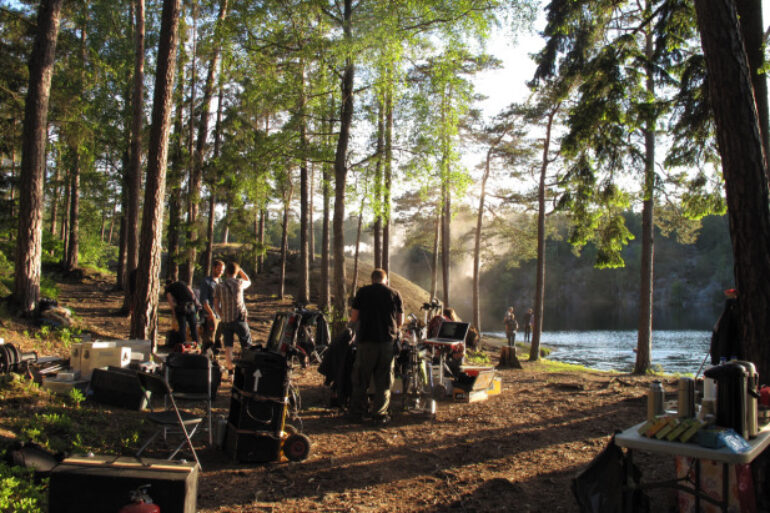WRITTEN BY: Annika Pham
The move is a very positive first step towards the implementation of a 25% production incentive, pledged by the local industry to make Sweden more competitive and to keep runaway shoots at home.
“Hallelujah, finally Sweden has realised we need a production incentive!!!
This rallying cry of victory from Miira Paasilinna, CEO at Anagram Sweden was very much shared by several industry people after the Swedish Culture Minister Amanda Lind announced Tuesday her decision to earmark SEK 100 million (€9.8m) towards production incentives from 2022.
Although details still need to be defined, and the government’s proposal has to be passed by Parliament in December, the proposal is seen as a victory from all corners of the industry.
Mikael Fellenius, CEO at the leading regional film fund Film i Väst who has been one of the main forces behind the lobbying campaign told nordicfilmandtvnews.com: “Finally, Sweden is a bit on the way to getting equal conditions of competition as the rest of Europe. Getting this long-awaited financing system will benefit the entire Swedish film industry,” he commented, before adding: “Politicians and officials at both regional and national level have been strongly involved in the issue and fought for the introduction of production incentives. As early as 2017, the Swedish Agency for Economic and Regional Growth recommended in its report “More film recordings to Sweden” production incentives to strengthen the domestic film industry. The report suggested SEK 300 million annually, but the budget proposition is now SEK 100 million. This is still better than nothing and that is definitely an important signal from the government.”
Fellenius added: “We are now preparing a film commissioner to go out and attract international film productions to place their upcoming productions in western Sweden. We will also continue to fight hard for Swedish film productions to remain in western Sweden. In addition, we continue to expand the western Swedish film production.”
Magdalena Jangard, Head of Production and Development at the Swedish Film Institute also said: “The good news [regarding production incentives] will mean a lot to the Swedish industry, both on a financial and creative perspective. It will make the industry grow and develop, and continue the boom we are experiencing now. It will hopefully create more jobs, give possibilities for Swedish production to afford to stay in Sweden, as well as compete when it comes to get international projects filming here.”
Nent Group’s Chief Content Officer Filippa Wallestam also said: We welcome the government’s proposal and are pleased to see this important topic on the cultural agenda. Content production is a highly competitive and fast-growing global industry, which means attractive incentives to produce locally are needed more than ever. NENT Group has a long-term commitment to the Swedish creative sector, and we will premiere more than 50 original productions this year. This incentive is a positive first step, although more action is still needed, and it will help bring even more of our region’s unique stories to viewers here and around the world.”
Meanwhile some major Swedish production houses were already starting to rethink their future production schedule based on Minister Amanda Lind’s announcement. “We expect to move some of the shooting and / or post-production back to Sweden.,” told Michael Porseryd, SF Studios CEO to nordicfilmandtvnews.com. “Currently many producers are forced to film outside of Sweden to make the economics of production work. This will allow further growth in the industry in both personnel and competence, and making sure that competence stays in Sweden is very important,” he underlined.
B-RF’s managing partner Fredrik Heinig also said: “2022 looks like it's going to be very busy [for us] with five big productions, so we will of course look into these regulations immediately as the rest of the Swedish film industry.”
Once the Swedish production incentive will be enforced, Denmark will be the only Nordic country without filming cash rebate or reimbursement scheme on eligible production expenditure incurred locally. Iceland was the first Nordic country to introduce an incentive programme in 2001, followed by Norway in 2016 and Finland in 2017.
The Swedish government also announced on Tuesday it would allocate an extra SEK 55 million for the Swedish Film Institute for 2022.
